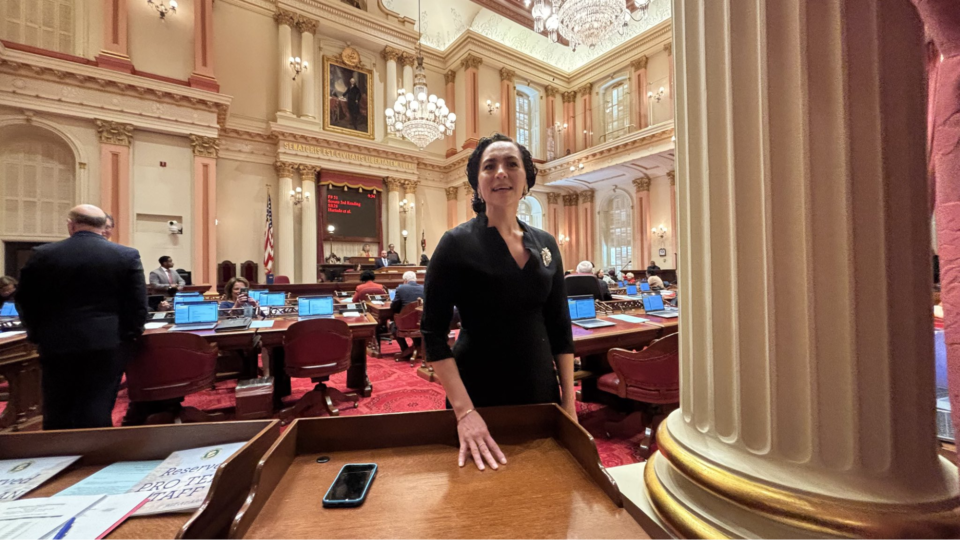“The Senate and its Chief Executive Administrator Erika Contreras decided to shove us in a back corner and give these desks to staff,” said KCRA’s Ashley Zavala.
Whenever there is a fiasco in Sacramento, Ashley Zavala—California Capitol Correspondent for KCRA 3—has a front row seat to watch it unfold. Usually.
Zavala was there to document the tumultuous end of the 2023-2024 Legislative Session in Sacramento—an unruly affair which saw the supermajority amending the rules for deliberation, shouting matches, the silencing of opposition, and the Assembly Speaker Pro Tem’s refusal to recognize Assemblymember Bill Essayli. It was a chaotic affair, but Zavala would be the first to tell you that legislators changing the rules for meetings is an all too common occurrence.
By that same token, the California State Senate took further action to—advertently or otherwise—to restrict journalist access by offering desks to legislators’ staff instead of members of the press. This is not a new development entirely, but it has just taken a turn for the worse. Zavala recently took to Twitter/X to sound the alarm bell and detail why this makes her job as a journalist—and her need to get the facts right on legislative issues for the purposes of informing the public—more difficult.
“Journalists at [the] CA State Capitol have few opportunities to have access to your lawmakers in a taxpayer funded building. The California State Senate has made it even harder for journalists to do their fundamental jobs of informing the people,” said Zavala.
“Sitting behind Senators allows us to get clarification on a bill, floor action, or to simply develop a rapport with members. But post-COVID, the Senate and its Chief Executive Administrator Erika Contreras decided to shove us in a back corner and give these desks to staff. For the last two years, [the Capitol Correspondents Association of California] has asked the Senate to give the desks back to journalists.”
Indeed, the CCA has been consistent on this point, believing it crucial to support news professionals by simplifying their work covering the state Capitol. In their own words, the Association “advises the Legislature and governor’s office on their assignment of reserved media seats in legislative chambers and the news conference room and on news media access to special events. It also acts as an advocate for open meetings, news media access, freedom of information issues and the fair distribution of public information.”
“Journalists have tried to sit there this year, but keep getting kicked out,” said Zavala. “I asked Senate leaders to again change this last month. No update.”
During the March 13 session, Zavala noticed that the desks now feature “reserved” signs for the staff—which she photographed and documented on social media. Some of the desks sat empty. Eventually, she was invited by an unnamed staffer to sit next to her in an empty desk. This led to a confrontation with Erika Contreras, who is photographed allegedly coming over to kick Zavala out of the otherwise unused seat.
During their fiery interaction, Zavala asked why staff “need to sit behind their members—whom they have access to all day every day—during floor session.” Eventually, Contreras relented when Zavala asked if she was truly going to have a sergeant forcibly remove her from the chamber.
The thread also critiques the Senate for restricting journalists from doing TV interviews in the hallway outside of the chamber with “no explanation” despite the fact that it is larger and more spacious than the Assembly’s. For context, the Assembly simultaneously allows journalists to interview lawmakers in the hall and provides desks for staff to sit.
Enraged users of the social media platform flooded her posts with supportive comments, stating “it’s a form of suppression of the free press, don’t you think?” and “California is not [a] democracy… We failed.” Another user replied “keep going Ashley, keep reporting what they think they can hide from us.”
Zavala concludes that she and her associates “hope Contreras and Pro Tem McGuire are serious about a future conversation about press access.”


